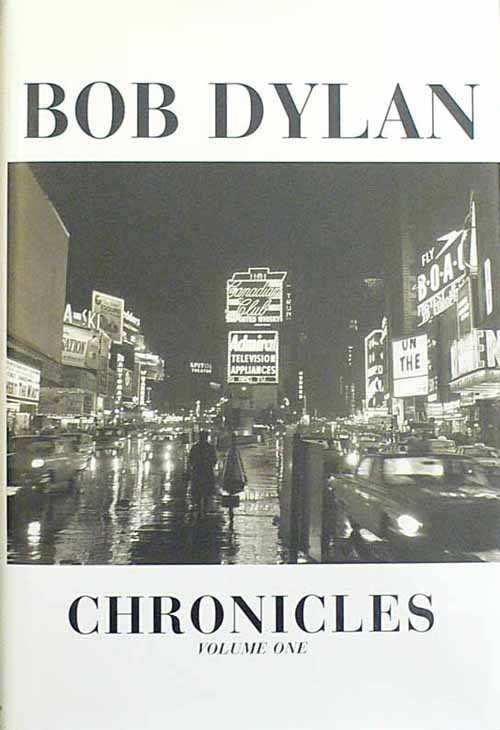Chronicles Volume One
Bob Dylan (2004) Simon and Schuster
Bob Dylan, songwriter, poet, and performer, has been the subject of multiple and often inaccurate interpretations. He has remained a very private man and his musical style has greatly changed over 40 years – contributing to his personal mystery. In Chronicles, he opens up a bit, but still remains guarded and enigmatic. But this is not to take away from a very good book (it has been a best seller and in the finals for a literary award) and the clear images that he does reveal.
Probably the difficulty may be my generation’s sincere respect for a multi-talented man whose songs seemed to speak for us whether about war, love, politics, and/or existential confusion. We have projected a prophet-like status to his genius over the course of 40 years. What Dylan makes clear is that he never wanted or accepted this role. He refused and certainly was uncomfortable speaking for and to a disillusioned generation. He saw himself (as much as he wants to reveal) as a songwriter like Woody Guthrie, not a “protest singer.”
Chronicles is really not a chronicle; it doesn’t follow a chronological order. Instead it presents a series of intense images of New York’s 1961 Greenwich Village scene, a side trip to New Orleans with sharp recollections of recording sessions, and glimpses of his early life in Minneapolis. But mostly, the book is about music and musicians. He is very gracious to other musicians, past and present, and holds them all in high regard. Dylan was totally committed and absorbed – consumed may be a better word – by music and musicians. His commitment, knowledge, and courage to try new approaches partly explain his musical genius. He reveals both his personal exuberance and depression about songwriting and performing. He certainly had his lows, but something has kept him going. What that something is remains elusive. He briefly gives credit to his wife, whom he never names, mentions that he has six children, but he is determined to protect his privacy, and to insure it, has moved to an undisclosed location. As with many other geniuses, his childhood experience and education provide no explanation for his creativity — thousands of original lyrics touching wide-ranging themes and emotions. From this book, we learn that he is also a gifted though circumspect prose writer. Reading Dylan is like seeing part of a private portrait. It leaves us wanting to see the whole picture, but unsure if we have the right.
Prof J. David Kinzie

Chronicle: “An extended account in prose or verse of historical events… presented in chronological order and without author or authorial interpretation or comment.”
